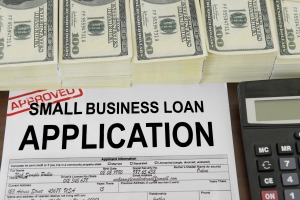August 01, 2014
So you’ve made a loan under the SBA 7(a) guaranteed loan program (Good for you, it’s a great program for both borrowers and lenders) and you want to make sure that if the loan goes bad, you can actually recover the 75-85% promised by SBA.
What can you do?
- Make sure your closing documents comply with the requirements and provisions set forth in your Loan Authorization. Required certifications and disclosures need to be included, preferably verbatim.
- Make sure your security interests are properly perfected. Mortgages and UCC financings statements recorded in the proper office. Sounds simple, but mistakes can have huge consequences!
- Document, document, document! Document the borrower’s equity injection, IRS verification of tax returns, every action taken, site visit performed, and communication with the borrower.
- Monitor and document all disbursements of loan proceeds. Confirm each is consistent with the authorization.
- Make all monthly reports to SBA.
- Pay the initial guaranty fee to SBA within 90 days of loan approval. Make each annual servicing fee payment.
- Make sure required Insurance assignments are in place and policies remain current.
- Be careful and conscientious if you have non-SBA loans to the same borrower.
- Familiarize yourself with the SBA Liquidation Matrix, keep a copy handy, and look at it before making any decision regarding the servicing of your 7(a) loan.
- When defaults or issues arise, perform a site visit. Document each visit with memos and photos of collateral if possible.
- Prepare a liquidation plan and follow it.
- Don’t delay in making your guaranty demand to SBA. It must be submitted within 180 days of loan maturity.
Good luck!
Jonathan Raulston is a partner with the firm of Engel, Hairston & Johanson, P.C. in Birmingham, Alabama. He practices in the areas of foreclosure, bankruptcy, commercial litigation, creditor’s rights, and collections. Jonathan is also a frequent lecturer on topics related to foreclosure and creditor’s rights.
Jonathan is a graduate of University of Alabama School of Law and obtained a B.S. from the University of Alabama. While at the University of Alabama School of Law, Jonathan was a member of Phi Delta Phi and the Farrah Law Society and was honored with the Best Paper in Limited Liability Companies. Jonathan is active in the bar association, most recently chairing the Executive Committee of the Birmingham Bar Association Bankruptcy and Commercial Law Section and serving as vice-chair of its Long Range Planning Committee.
